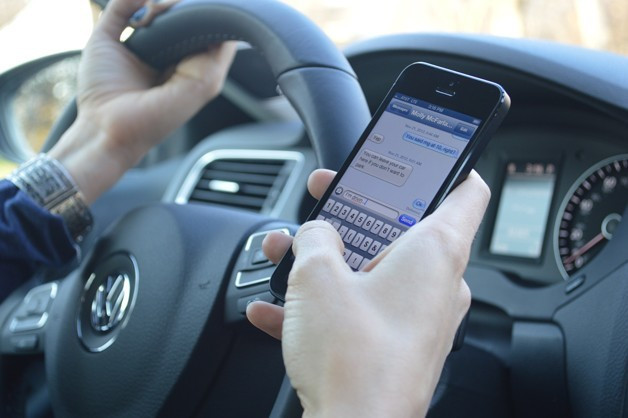Road safety advocates call for 'drive-safe' mode for smartphones to reduce fatal accidents
Proposed setting would work similarly to aeroplane mode and would limit distractions at the wheel.

Road safety advocates are calling for a "drive-safe" mode for smartphones in a bid to reduce road accidents. The RAC Foundation believes mobile devices should have a dedicated mode that restricts their functionality while at the wheel of a vehicle in order to stop them being a potentially deadly distraction to drivers.
According to the UK-based charity, at least 70 fatal road accidents in Britain each year are caused by distractions in the vehicle, while around 20 fatal crashes are caused by driving while using a mobile phone.
At the same time, drivers are increasingly relying on mobile phones to help them navigate while driving. This leaves them susceptible to distraction if they leave other apps running in the background.
The proposed drive-safe mode would work similarly to aeroplane mode by placing certain restrictions on a device's settings while being used in a car.
Steve Gooding, director of the RAC Foundation, said: "In many ways smartphone technology and mobile communications are a godsend for road users, allowing us to do everything from getting directions to dodging congestion to calling for help if we break down.
"Yet the more functionality our cars and electronic devices have, the greater the chance that drivers get distracted or overwhelmed with information, particularly when using smartphones as Sat Navs while all the other functions are still 'live'."
Apps that limit the functionality of a mobile phone while at the wheel do exist, yet it is currently the driver's responsibility to download and use them. Do not disturb options also exist, although these still allow notifications to come through and aren't specifically related to driving.
In a series of surveys with automakers, telecoms providers and phone manufacturers, the RAC Foundation found that in-vehicle distraction was not considered a priority during the design phase of their equipment, largely because there are currently no international guidelines around the use of mobile phones and communications devices while driving.
Additionally, these companies are hesitant to place limitations on the use of their equipment while driving because they are worried it will drive customers towards competitor's products.
"A key question is where responsibility lies," said Gooding. "Many in the industry say the onus must be on the user rather than the manufacturer.
"There may come a day when autonomous cars allow us to spend all our time looking at our mobile, tablet and computer screens. Until then as drivers we need to make sure we have our eyes on the road."
© Copyright IBTimes 2025. All rights reserved.






















